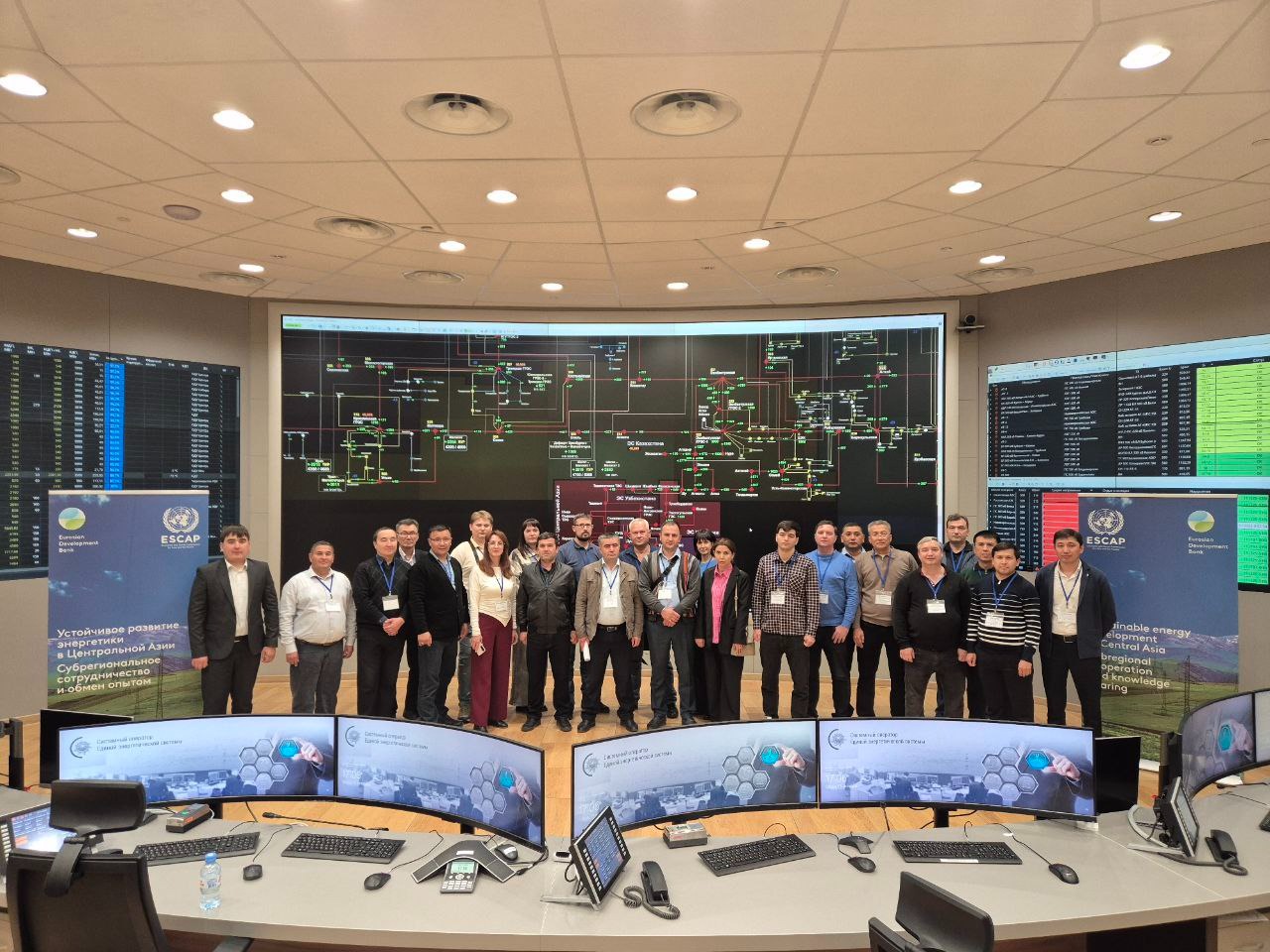The EDB and UNESCAP complete their joint project supporting the experience exchange among Central Asian energy specialists
Almaty, October 24, 2025.
On October 16, 2025, the final module of the regional project launched by the Eurasian Development Bank (EDB) in collaboration with the United Nations Economic and Social Commission for Asia and the Pacific (ESCAP) was completed. The project aimed to facilitate the exchange of experience in operational and dispatching control and to enhance the professional competencies of energy specialists from Central Asian countries.
The project, titled Supporting Sustainable Energy Development in Central Asia by Expanding Subregional and Cross-Country Cooperation through the Exchange of Competencies and Knowledge, was launched on April 14, 2025. The initiative was financed by UNESCAP and the EDB Technical Assistance Fund and forms a part of the Bank’s key mega-project – the Central Asian Water and Energy Complex.
The programme comprised seven modules held from April to October. The training focused on improving the qualifications of dispatch personnel, enhancing the reliability of power system management and fostering cooperation among countries in the region.
A total of 164 representatives of major energy companies and specialised organisations from Central Asia took part, including:
- JSC “KEGOC” (Kazakhstan)
- OJSC “National Electric Grid of Kyrgyzstan”
- State Unitary Enterprise “National Dispatch Centre” at the Ministry of Energy of Uzbekistan
- OJSC “Barqi Tojik” (Tajikistan)
- Turkmenenergo State Power Plant (Turkmenistan)
- Coordination and Dispatch Centre Energia
Through the workshops, participants gained knowledge on modern approaches to power system management, digitalisation, monitoring and ensuring the reliability of power grid operations. The programme featured lectures by leading experts, case studies and discussions on current industry challenges.
Feedback from participants:
- “The course overall has broadened my understanding of control systems and process monitoring. In my work, I usually deal with highly specialised solutions, so it was particularly interesting to learn about the systems used in other departments and gain a more holistic perspective.”
- “The programme proved very relevant. As a specialist in operating regimes, I not only refreshed my knowledge but also got many ideas that I plan to apply in my work.”
- “The programme provided useful knowledge and insights into power system practices in neighbouring countries. Such exchanges are essential for the coordinated and professional operation of Central Asian energy systems.”
- “Sharing experience with representatives of other energy systems is important to compare approaches, discuss differences constructively and understand whether our system is developing in the right direction.”
- “I have learnt a lot and realised that technological innovations greatly facilitate the work of operating personnel, improving the reliability and safety of energy generation.”
On 17 October, EDB representatives met with Hongpeng Liu, Director of the ESCAP Energy Division, to summarise the project’s results and discuss potential areas of cooperation in 2026 under the Memorandum of Understanding signed on 3 September 2024. The parties expressed interest in continuing their joint efforts on technical assistance projects, with a focus on enhancing technical cooperation among EDB member countries and improving the qualifications of specialists in energy, water and infrastructure.
Additional Information:
The Eurasian Development Bank (EDB) is a multilateral development bank investing in Eurasia. For more than 19 years, the Bank has worked to strengthen and expand economic ties and foster comprehensive development in its member countries. By July 2025, the EDB’s cumulative portfolio comprised 319 projects with a total investment of US $19.1 billion. The portfolio consists principally of projects with an integration effect in transport infrastructure, digital systems, green energy, agriculture, manufacturing and mechanical engineering. The Bank adheres to the UN Sustainable Development Goals and ESG principles in its operations.
The EDB is implementing three mega-projects as part of its 2022–2026 Strategy: the Central Asian Water and Energy Complex, the Eurasian Transport Network and the Eurasian Agricultural Goods Distribution System.
The United Nations Economic and Social Commission for Asia and the Pacific (ESCAP) is the regional development arm of the United Nations for the Asia-Pacific region and its largest regional commission in terms of geographical coverage and population. Founded in 1947 and headquartered in Bangkok, ESCAP promotes cooperation among its 53 member states. Its main areas of focus include environmental protection, natural resource management, investment cooperation, trade, energy and transport.
The EDB Media Centre:
+7 (727) 244 40 44, ext. 4774 and 2160

